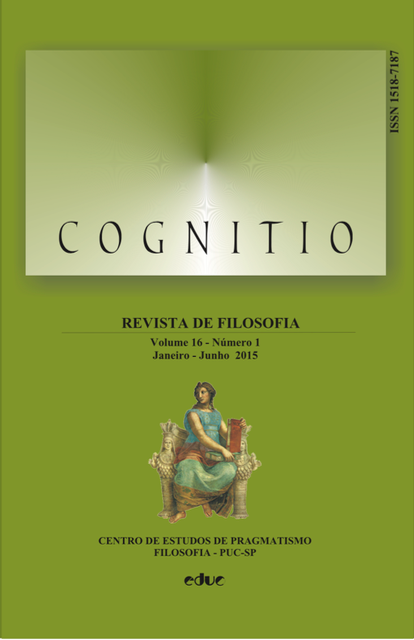As principais questões e objetivos que orientam a fenomenologia peirciana
Palavras-chave:
Fenomenologia, Observação, Formal, Categorias, Erro, Análise, Medição, Hipótese, Abdução, Indução, Método científicoResumo
O objetivo deste artigo é esclarecer as principais questões e objetivos orientadores das investigações fenomenológicas de Charles Sanders Peirce relativas às categorias universais. O artigo divide-se em quatro partes. Na primeira seção, eu forneço uma breve revisão das categorias fenomenológicas e articulo uma preocupação com interpretações-padrão da finalidade deste tipo de investigação fenomenológica. Em segundo lugar, considero exemplos extraídos da própria obra de Peirce na astronomia e no estudo de forças gravitacionais, e ofereço algumas razões para pensar que sua descrição filosófica das categorias universais é modelada, em certos aspectos, por seu entendimento da forma como os cientistas devem analisar os fenômenos que pedem por explicação. Em terceiro lugar, forneço uma visão geral da abordagem filosófica do método científico peirciano, e explico o papel que sua teoria fenomenológica tem em sua relação com esse método de investigação. Por último, considero um exemplo tirado da metafísica que é projetado para ilustrar o papel da fenomenologia na investigação filosófica.Métricas
Carregando Métricas ...
Downloads
Arquivos adicionais
Publicado
2015-10-21
Como Citar
Downard, J. B. (2015). As principais questões e objetivos que orientam a fenomenologia peirciana. Cognitio: Revista De Filosofia, 16(1), 87–102. Recuperado de https://revistas.pucsp.br/index.php/cognitiofilosofia/article/view/25188
Edição
Seção
Artigos Cognitio









